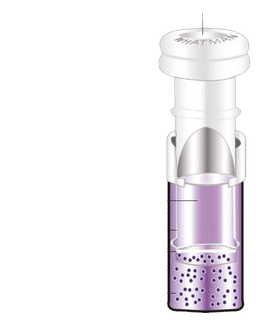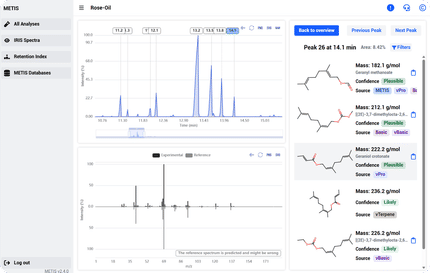To use all functions of this page, please activate cookies in your browser.
my.chemeurope.com
With an accout for my.chemeurope.com you can always see everything at a glance – and you can configure your own website and individual newsletter.
- My watch list
- My saved searches
- My saved topics
- My newsletter
Acetaldehyde dehydrogenase
Acetaldehyde dehydrogenases (EC 1.2.1.10) are dehydrogenase enzymes which convert acetaldehyde into acetic acid. The oxidation of acetaldehyde to acetate can be summarized as follows:
The CAS number for this type of the enzyme is [9028-91-5]. Product highlight
GenesIn humans, there are three genes which encode this enzymatic activity, ALDH1A1 [1], ALDH2 [2], and the more recently discovered ALDH1B1 (also known as ALDH5) [3]. These enzymes are members of the larger class of aldehyde dehydrogenases. Role in metabolism of alcoholIn the liver, the enzyme alcohol dehydrogenase oxidizes ethanol into acetaldehyde, which is then further converted into the harmless acetic acid (vinegar) by acetaldehyde dehydrogenase. Acetaldehyde is more toxic than alcohol and is responsible for many hangover symptoms. N-acetylcysteine (NAC) is known to assist in processing acetaldehyde in the body and therefore can help to relieve hangover symptoms. Some persons of far-Eastern descent have a dominant mutation in their acetaldehyde dehydrogenase gene (specifically, the mitochondrial ALDH2 gene), [1] making this enzyme less effective. In these people, acetaldehyde accumulates after drinking alcohol, leading to symptoms of acetaldehyde poisoning, including the characteristic flushing of the skin and increased heart and respiration rates. Individuals with deficient acetaldehyde dehydrogenase activity are far less likely to become alcoholics, but seem to be at a greater risk of liver damage, alcohol-induced asthma, and contracting cancers of the oro-pharynx and esophagus due to acetaldehyde overexposure. The drug disulfiram (Antabuse®) also prevents the oxidation of acetaldehyde to acetic acid, with the same unpleasant effects for drinkers. It is used in the treatment of alcoholism. See alsoReferences
|
|||||||||||||||||||
| This article is licensed under the GNU Free Documentation License. It uses material from the Wikipedia article "Acetaldehyde_dehydrogenase". A list of authors is available in Wikipedia. | |||||||||||||||||||







